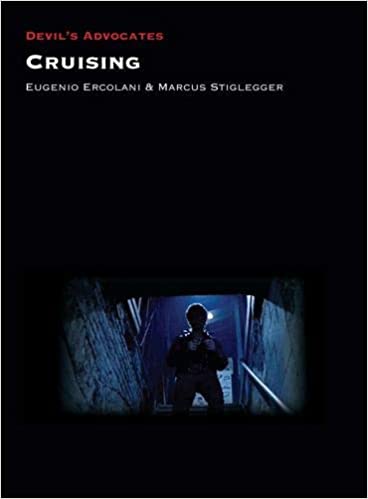
Veröffentlichung
2021
Description
In the fading atmosphere of the New Hollywood era, William Friedkin – the wunderkind director with an Academy Award for his cop drama, The French Connection (1971) who then scored an even bigger success with The Exorcist (1973) – began work on what would prove to be the most controversial film of his career: Cruising (1980). In the process he established a template for a sub-genre, the serial killer thriller, that would thrive long after his film had left theatres, having caused widespread offence among the very audience he’d hoped to appeal to, via a campaign mobilised by the counter-culture press. As such, Cruising can be read as a bitter farewell to the seventies and its cinema and industry. This Devil’s Advocate dives deep into the phenomenon that is Cruising, examining its creative context and its protagonists, as well as examining its ongoing popularity as it turns 40 in 2020.
Reviews
‚Eugenio Ercolani’s and Marcus Stiglegger’s book on William Friedkin’s Cruising is an important addition to the annals of scholarship and fandom devoted to this long neglected and underrated masterpiece of American cinema in the 1980s. Meticulously researched, it documents the gay culture that surrounds the film and its former controversial status, as well as the biographies and backgrounds of the key, creative people involved. Most importantly, it offers a new, open-minded interpretation of this wilfully fragmented and complex film.‘
Adrian Martin, film critic
‚This is the book we’ve all been waiting for! Everything we ever wanted to know about the inception and reception of Cruising, William Friedkin’s controversial plunge into the raunchy gay underbelly of pre-AIDS New York City, is all documented right here in this great book. Consummate cineastes Eugenio Ercolani and Marcus Stiglegger leave no stone unturned in this page-turner! It’s a must!‘
Sam Irvin, film & TV director
‚This academic treatise on William Friedkin’s divisive 1980 murder mystery offers much to intrigue… [the authors] persuasively unpack its weirdly lingering pull.‘
Kevin Harley, Total Film
